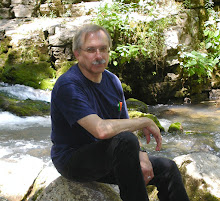A major resource in our understanding of peoples of the world is
the Ethnologue, the primary authority on languages of the world. A few years ago the codeset of the Ethnologue became the world standard of the International Standards Organization (ISO) for languages of the world.
The entries in the
Ethnologue indicate the main name of a language. Dialects of the language are listed, as well as alternative names under which the language or dialects have been listed previously.
In people group research, the
Ethnologue language code is correlated with the similar code for peoples from the
Registry of Peoples. In many cases the name of a dialect corresponds with the name of an ethnic group that speaks that form of the broader language. That just depends on the self-identity attitude of that group. You have to find out from them. This is where field linguists and anthropologists are so critical.
For reference purposes, a list of peoples (ethnicities, tribes or people groups) of the world needs to indicate whether a certain known group is a separate entry or is considered a sub-group of another people. The formal world-level classification may be different from a more local database or cultural profile looking at more details of local relationships and interaction.
So What Do you Do?
I had this problem, for example, with the
Gawwada people of Ethiopia. Several divisions of the Gawwada people were listed under
the Gawwada entry in the Ethnologue, with their individual populations. But the Gobeze sub-group identified by the Ethnologue had no population.
Should these people all be listed separately though they all spoke one language? What about the Gobeze? How different were they? Limited information is frustrating for the analytical westerner!
As editor of the Registry of Peoples at the time, I had to make a call for classification purposes. At that point, I assumed that the report in the Ethnologue indicates that there are some separate ethnic groups who all speak forms of the same language. But I do not know how closely related they consider themselves. And why is no separate population or information given on the Gobeze people/dialect?
With the state of information available, I considered that those listed with populations think of themselves as separate ethnic groups, but closely related. The information seemed to indicate that the name Gobeze referred to an identifiable variation of speech, but that if this name also indicates a discrete group of people (like a family, a village, a region, etc.), they consider themselves still to be part of the Gawwada.
This was confirmed to some degree by a linguist investigating these speech forms (personal communication to me). He indicates that the term Gobeze is used for the main dialect, spoken by the greatest number and used as a "standard" language form for these closely-related peoples.
With the uncertainty, I decided not to enter separate ethnic names in the main people group database, but to provide a complete picture, I would indicate them in the profile. We are always watching for further information and updates are made as needed.
Anything that will clarify the communication and relationship patterns will be critical for outsiders who wish to work with this people cluster. This is a common situaiton around the world.
So Who Cares?
Language information can sometimes help clarify people identity. Linguists working on literacy development sometimes report one village or clan is unwilling to accept oral or written resources in the dialect of the neighboring village because it is not "theirs," even though they can communicate with no trouble at all with those neighbors. This is a complicating factor for the task-oriented westerner limited by funds, time and other resources in developing literacy programs and materials.
This is not due to a peevish childish self-centeredness of that village or clan. This is a factor of the fundamental orientation to the world. The western worker has to decide: Do you want to help them learn to read and provide written or oral resources meaningful in their context? Or do you want to have to convert a whole culture to a new worldview and orientation to reality first?
Worldviews change as opportunities appear and challenges are met. Self-identity is integrally related to Shared Significant Experiences within the group. Initial communication and presentation of possiblities must start within the current worldview.
For more on the relationship of Language and Ethnicity
Accent, Dialect and Language
Dialects, Peoples and Cultural Change
Peoples and Languages
What Makes a Dialect a Dialect?
For more on how to define a "people"
Assimilation: How Peoples Develop and Change
Cities and People Groups
What is a People Group?
This blog includes some content originally published in September 2001 in
Research Highlights, a research and culture newsletter published in Nicosia, Cyprus
This topic posted 8 January 2013
Last updated 14 February 2013


